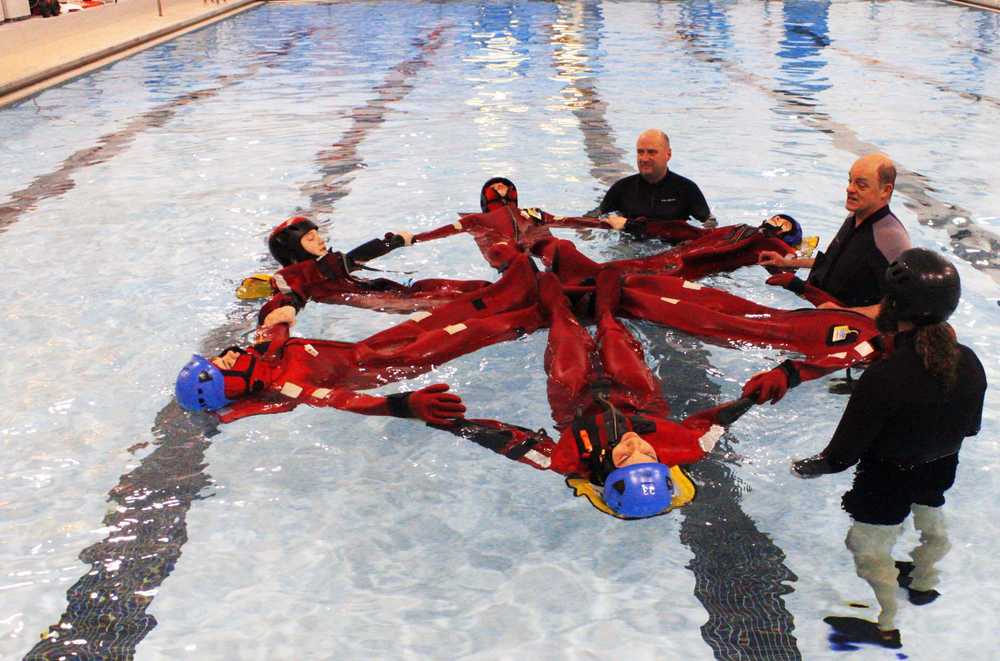Instead of taking a break from learning, an eager group of seven teens spent their spring vacation developing skills such as identifying edible tree bark, and escaping a submerged fuselage during Survival 101, which debuted at the Challenger Learning Center of Alaska in Kenai on Monday, March 10.
After he spent hours encased in a restrictive survival suit, repeatedly dumped upside down underwater, and dragging his peers across the pool at Kenai Central High School, Donovan Orth, 14, said there still wasn’t a single thing he hasn’t liked at the camp this week.
“The survival suits were buoyant and fun to lay back on,” Orth said. The water-based activities were meant to reproduce emergency situations people may encounter as part a plane crash, or having fallen overboard and in very cold water.
Students were taught to pat their heads if anything went wrong, and an instructor would immediately pull them out of the water.
Summer Lazenby, Director of Education Operations, has also taken the water-safety training, which had previously been offered only for adults. Lazenby said staff at the Challenger Center realizes it is possible to encounter life-threatening situations in the Alaskan wilderness around Orth’s age.
In training, Lazenby was strapped into a chair and flipped upside-down, to replicate a plane-crash, when she experienced a brief moment of panic. When she gave the signal, she was immediately ripped from the simulator.
Including hands-on activities was an integral part of creating a coaching “format appropriate for kiddos,” Lazenby said. Sometimes teenagers have a hard time relating what they are learning to real scenarios, she said.
Deanna Carter, 13, said she had learned relevant skills. Carter said she could now pick edible berries if she got lost while camping with her mom, or survive in cold water if she fell overboard when fishing with her grandpa.
“Once you know how to use the stuff it’s kind of easy,” Carter said with a laugh. The day before she learned to make a fire out of a battery and cotton.
The students also learned to purify water, boating safety and how to build shelters, lead instructor Greg Olcott said. On the last day they are scheduled learn about avalanche safety and tips for navigating the backcountry, from Kenai Fire Department Engineer Sam Satathite who has climbed Mount McKinley.
As a result of their training, the group will also be certified as Peer Educators for Kids Don’t Float, the Challenger Learning Center’s boating safety education program, Olcott said. Students will present the 45-minute PDF demonstration to younger groups in Challenger Center’s other spring break camps, on their last day the Survival 101, he said.
During it’s trial run, Olcott said they had a few tiny bumps but overall it was a success. Both Olcott and Lazenby said they hope to revive the camp this coming summer.
A warmer season will offer a greater learning opportunity, Olcott said. It offers experience in a more realistic environment for the presented scenarios, he said.
Instructors could point out a wider variety of consumable vegetation, and teach cold-water training in a real body of water other than an 80-degree pool, Olcott said. Although they might not last as long, he said.
“Regardless of how old you are, if you are six or sixty, unfortunately people just don’t realize the danger of cold water,” Olcott said.
Kelly Sullivan can be reached at kelly.sullivan@peninsulaclarion.com

